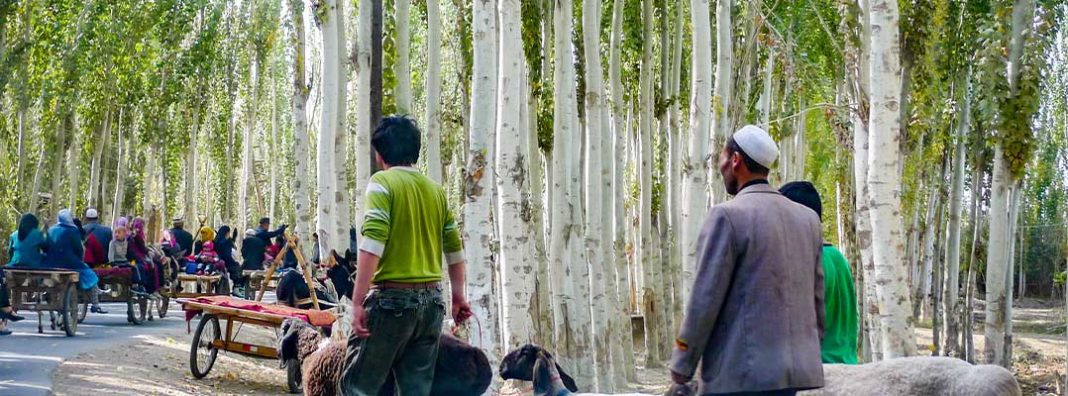
On June 3, 1939, the MS St. Louis sat off the coast of Florida. The ship was carrying over 900 people, mainly Jewish refugees from Germany fleeing anti-semitism. It was bound for Cuba. Yet as news spread in Cuba about the voyage, calls for Cuba’s government to prevent them from entering the country grew loud enough to spur the government to refuse entry. So they turned to America and waited off Florida’s coast, close enough to see the lights of Miami.
Several groups within the United States lobbied to allow the passengers to stay. But it was a long shot. Messages to President Franklin Delano Roosevelt and First Lady Eleanor Roosevelt were ignored. The U.S. couldn’t let them in under existing immigration rules. The quota allowed for German immigrants had already been met for the year.
The St. Louis’s passengers then sought refuge in Canada as well but were denied again. Ultimately, only cash guarantees from the Joint Distribution Committee, a Jewish relief organization, secured refuge for the passengers. Britain took in 288. The Netherlands 181, Belgium 214, and 224 stayed in France.
Only Britain’s share of the passengers had escaped the Nazi advance in World War 2. Of the 288 refugees accepted by Britain, only one died during an air raid in 1940. The rest lived to see the end of World War 2. In contrast, of those who were returned to the other countries, 254 died in concentration camps, internment, or while avoiding the Nazis.
If we could go back in time, no one would object to admitting all 900 of the St. Louis’s passengers to the U.S. But we can only look forward. Hindsight is a sharp guide for how current events will play out. And we should use that hindsight to guide immigration policy today.
America must recommit to the promise embodied by the Statue of Liberty and given voice in Emma Lazarus’s famous poem. The huddled masses yearning to breathe free should be able to count on us to learn from our past mistakes and open our arms to those persecuted across the globe.
Today’s MS St. Louis: Uyghurs and Hongkongers
Several groups today parallel the St. Louis’s experience. Two groups that the U.S. should open its arms to are the Uyghurs of northwest China and the people of Hong Kong. Both groups deserve refugee status and a place in America’s future.
We should offer refugee status to the Uyghur ethnic population in China. The Uyghur population is a predominantly Muslim ethnic group in China. Since 2014, China’s government has detained Uyghurs in reeducation and labor camps. In 2018, the Wall Street Journal reported that one sign in an internment camp read, “Sense the party’s kindness, obey the party’s words, follow the party’s lead.”
There are also efforts to reduce the number of Uyghurs through birth control methods and forced sterilizations. The Associated Press documented a drop in birth rates within two regions of China with predominantly Uyghur populations using China’s published data.
Uyghurs are a vulnerable group. A group that the U.S. should open its arms to. Many Uyghur individuals have already applied for protection under existing laws. They just haven’t received protection. In July 2020, the Wall Street Journal reported that many Uyghurs are stuck in an “immigration limbo.” One woman’s request for political asylum had been pending for 1,796 days.
On President Trump’s second-to-last day in office, January 19, then Secretary of State Mike Pompeo officially declared that China’s actions towards Uyghurs is a form of genocide. Uyghurs shouldn’t need to wait to escape.
In addition to the Uyghur people in China, pro-democracy activists in Hong Kong are another strong candidate for special refugee status. Hong Kong has experienced a crackdown on civil liberties like free speech since the passage of a new security law by the Chinese government at the end of 2020. According to one pro-democracy advocate, the law makes China the “judge, warden, and executioner — all in one.” Before the change, Hongkongers enjoyed more freedoms than mainland China — a holdover from the city’s time as a colony of the United Kingdom.
Hong Kong has seen large protests over the last two years tied to the mainland Chinese government’s efforts to reduce the differences between the two systems. The American flag was a common feature at many of these protests. The Senate is moving forward on legislation that would give Hongkongers subject to this new law a path towards refugee status in the United States. And the House of Representatives has a similar bill. These are promising efforts to assert America’s place as a defender of fundamental rights.
The best path forward here would be swinging wide America’s door to all persecuted ethnic minorities in China — and giving special consideration to Uyghurs. An easy solution might be expanding the existing legislation that would give Hongkongers a pathway into the U.S. to include ethnic and religious minorities within China.
Living up to America’s promise
When the refugees aboard the St. Louis learned that they were heading to America, many were overjoyed. Liesl Joseph Loeb, one of the passengers, recorded, “America was a magic word. It was the be-all and end-all. We knew America would not let us down.” Although America failed Liesel, she and her family were accepted by Britain.
Although temporarily denied, Liesl eventually came to New York after World War 2. She recorded a personal history with the USC Shoah Foundation Institute and died only eight years ago in 2013. That same opportunity to come to the U.S. should be ensured for pro-democracy activists in Hong Kong, the Uyghurs of northwest China, and all others who share American values yet find themselves threatened by their government.
The United States should throw its golden door wide. There are strong economic arguments for expanding immigration. But in the case of activists promoting democratic values and those persecuted for their religious beliefs or their ethnicity, opening pathways for the persecuted is much more about living up to America’s own ideals.

